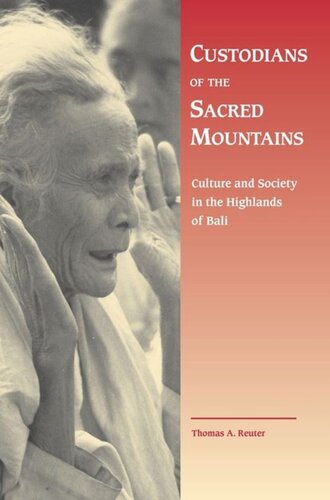

Most ebook files are in PDF format, so you can easily read them using various software such as Foxit Reader or directly on the Google Chrome browser.
Some ebook files are released by publishers in other formats such as .awz, .mobi, .epub, .fb2, etc. You may need to install specific software to read these formats on mobile/PC, such as Calibre.
Please read the tutorial at this link: https://ebookbell.com/faq
We offer FREE conversion to the popular formats you request; however, this may take some time. Therefore, right after payment, please email us, and we will try to provide the service as quickly as possible.
For some exceptional file formats or broken links (if any), please refrain from opening any disputes. Instead, email us first, and we will try to assist within a maximum of 6 hours.
EbookBell Team

4.1
30 reviewsCustodians of the Sacred Mountains is the first comprehensive ethnography of the Bali Aga, a large ethnic minority that occupies the island's central highlands. The Bali Aga are popularly viewed as the indigenous counterparts to other Balinese who trace their origin to invaders from the Javanese kingdom of Majapait, who have ruled Bali from the fourteenth century A.D. Although Bali remains one of the most intensely researched localities in the world, the Bali Aga have long been overshadowed by the more exotic courtly culture of the south.
A closer analysis of the changing position of the Bali Aga within Balinese society provides a key to understanding the politics and social process of cultural representation in Bali and beyond. The process is marked by a blend of representational competition and cooperation among the Bali Aga themselves, among the Bali Aga and southern Balinese, and later among the island's aristocratic elites and foreign colonizers or scholars, and state authorities. The study of this process raises important issues about the establishment and maintenance of status and power structures at regional, national, and global levels.
Custodians of the Sacred Mountains explores the marginalization of the Bali Aga in light of a critical theory of cultural representation and calls for a morally engaged approach to ethnographic research. It proposes an intersubjective and communicative model of human interaction as the foundation for understanding the relative significance of cooperation and competition in the cultural production of knowledge.